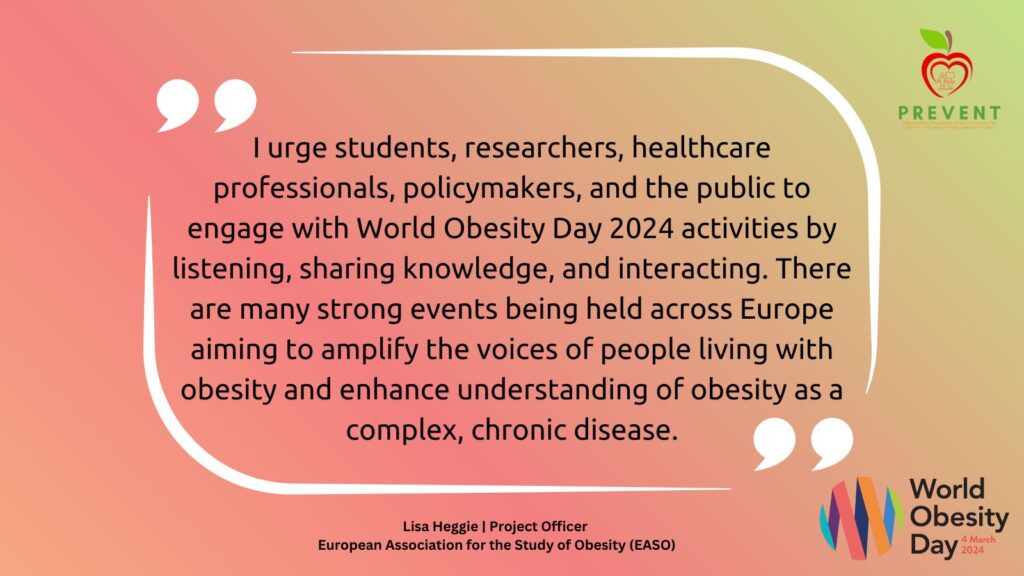According to the World Health Organisation, obesity is a complex, chronic disease defined as “abnormal or excessive fat accumulation that presents a health risk”. The development of obesity is underpinned by a complex network of biological, social, and environmental factors. In Europe, one in three children aged 6 to 9 live with obesity, and children with obesity are likely to continue to be affected by obesity in adulthood. People living with obesity face a greater risk of developing various chronic conditions such as diabetes, cardiovascular disease, and certain types of cancers. Therefore, addressing childhood obesity is urgent for the health of the global population.
Recognising this urgency, World Obesity Day is a global event established to increase awareness and knowledge about obesity, taking place annually on the 4th of March. In Europe, the event is hosted by the European Coalition for People Living with Obesity (ECPO) a patient-led organisation acting as the authoritative European patient voice with respect to obesity prevention, treatment, ongoing management, and policy. World Obesity Day serves as an international awareness day, urging a collaborative, multi-sectoral approach to address the obesity epidemic.
As part of its aims of improving population health, the European Commission actively promotes nutritious diets and active lifestyles among children. In May 2007, the European Commission published a Community Strategy to address overweight and obesity. This strategy, centered on nutrition, overweight, and obesity-related health concerns, emphasises actionable steps at local, regional, national, and European levels to mitigate health risks linked to inadequate nutrition and physical activity. It also aims to address health disparities among member states. This strategy encompasses a range of policies focused on improving the health of children across Europe through enhanced nutrition and physical activity. For example, it described the EU School Scheme, which is an ongoing health initiative which helps provide millions of children from nursery to secondary school with milk, fruit, and vegetables. However, consistent increases in European childhood obesity prevalence indicate barriers may exist to the successful implementation of such policies. The PREVENT project was established as no intervention had significant success so far and therefore, it aims to enhance existing interventions through implementation research. Thus, PREVENT’s objectives are perfectly aligned with the goals of the EU, as the project actively contributes to addressing childhood obesity by identifying these barriers and providing solutions to help overcome them.
There are a number of events happening across Europe for World Obesity Day 2024 aiming to educate on obesity and provide a platform for discussion. The European Association for the Study of Obesity (EASO) and the World Organization for Family Doctors (WONCA) Europe are collaborating on a specialist, 2-hour event, updating physicians on the latest developments in obesity pharmacotherapies. The Belgian Association for the Study of Obesity (BASO) is hosting a live event to launch a White Paper recommending a holistic approach to obesity as a chronic disease. The complete schedule of #WODEurope events can be found here.





